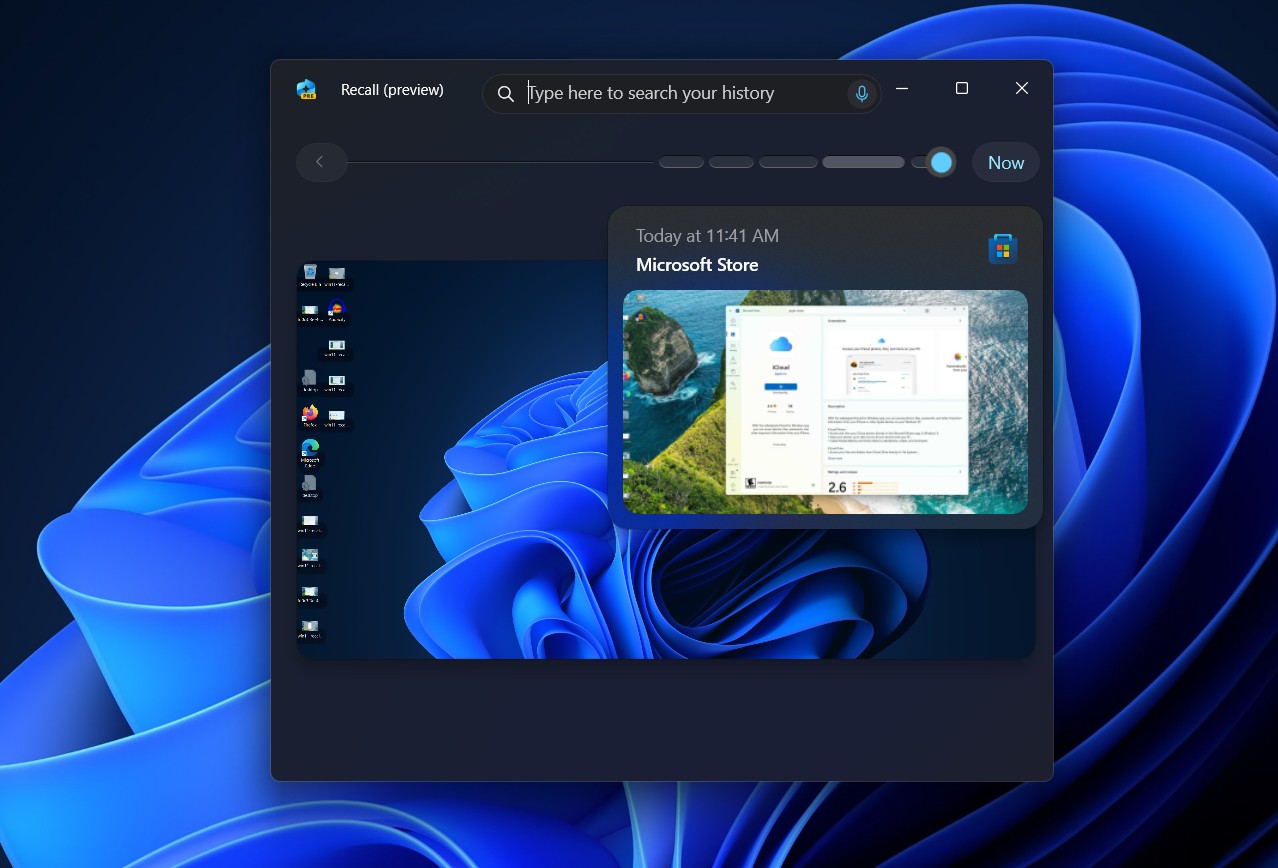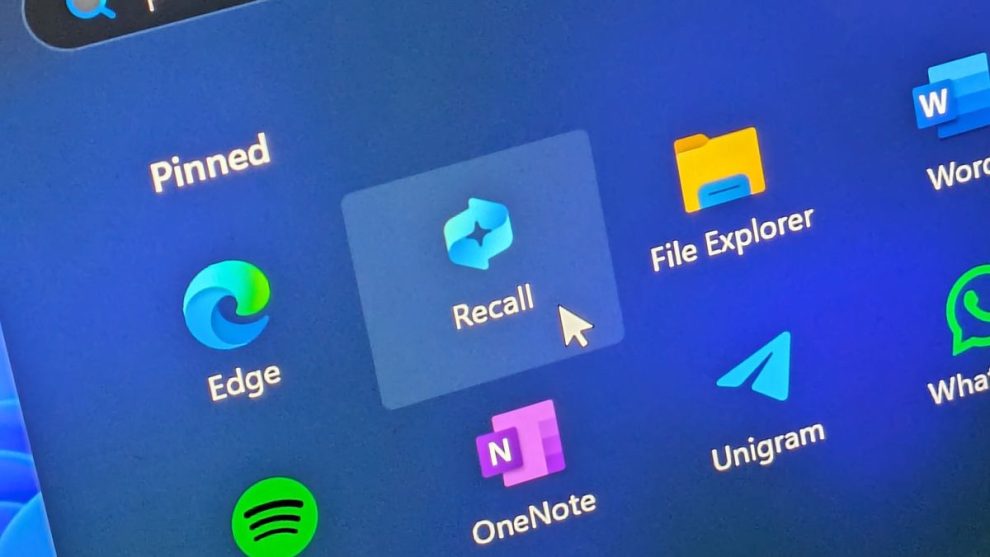Microsoft’s latest innovation, Windows Recall, promises to revolutionize user experience with its AI-powered personalized assistance. However, the upcoming feature, set to debut on June 18th with Copilot+ PCs, has raised eyebrows among security experts due to its data collection methods. A recent revelation by an ethical hacker has further intensified the debate surrounding Recall’s potential privacy risks.
The Mechanics of Windows Recall: Convenience or Privacy Concern?
Windows Recall is designed to enhance user productivity by leveraging AI to provide context-sensitive suggestions and automate tasks. The system captures screenshots every five seconds, which are then analyzed by the AI assistant to anticipate user needs. While Microsoft emphasizes the convenience this brings, privacy advocates are sounding the alarm.
The continuous screenshot capture raises concerns about the extent of data being collected. Beyond work-related documents, Recall could potentially capture sensitive information visible on a user’s screen, such as personal emails, financial data, or browsing history. This comprehensive data collection paints a detailed picture of a user’s digital life, which, if compromised, could have severe consequences.

Ethical Hacker Develops “TotalRecall” Tool, Exposing Vulnerability
An unnamed ethical hacker, as reported by Wired magazine, has developed a tool called “TotalRecall” that exposes a critical flaw in Windows Recall’s security. The tool circumvents existing security measures and extracts all the data collected by Recall, including the captured screenshots.
The implications of this discovery are significant. If malicious actors were to exploit this vulnerability, they could potentially gain access to a wealth of sensitive user information. From login credentials to banking details and private conversations, the data collected by Recall could be a treasure trove for hackers.
Microsoft’s Response and the Need for Enhanced Security Measures
Microsoft has issued a statement in response to the concerns raised, assuring users that the captured screenshots are anonymized and securely stored. They also highlight the user’s ability to disable Recall entirely if privacy concerns outweigh the benefits. However, security experts remain unconvinced.
Anonymization of screenshots can be bypassed using sophisticated image recognition techniques, rendering Microsoft’s assurances less comforting. Moreover, relying solely on user choice to disable the feature may not be sufficient, as less tech-savvy individuals may not fully grasp the potential risks or know how to navigate the privacy settings.
To address these concerns, Microsoft must take proactive steps to enhance Recall’s security:
- Robust Encryption: Implementing state-of-the-art encryption for captured screenshots would significantly reduce the risk of data breaches, even if vulnerabilities are exploited.
- Granular Control: Providing users with fine-grained control over what data Recall captures (e.g., specific application windows) would allow for a more personalized balance between convenience and privacy.
- Transparency and Education: Microsoft must be transparent about the data collected and its usage. Additionally, they should invest in educating users about privacy settings and how to disable Recall if desired.
The Broader Implications: Balancing Innovation and Privacy
The controversy surrounding Windows Recall is a reflection of the larger debate about privacy in the age of AI-powered services. As technology giants race to deliver increasingly personalized experiences, the collection of vast amounts of user data becomes a double-edged sword.
On one hand, these innovations offer undeniable convenience and productivity benefits. On the other, they raise valid concerns about the security and privacy of personal information. The onus is on companies like Microsoft to find a delicate balance between pushing the boundaries of innovation and respecting user privacy.
The discovery of the TotalRecall tool serves as a timely reminder that convenience should not come at the cost of privacy. As we move forward in an increasingly AI-driven world, it is crucial that developers prioritize robust security measures and give users meaningful control over their data.
The future of Windows Recall, and similar AI-powered features, will depend on how effectively Microsoft addresses these concerns. By taking proactive steps to enhance security, transparency, and user control, they can build trust and pave the way for responsible innovation. The alternative – a breach of user trust – could have far-reaching consequences for both the company and the wider tech industry.
As the launch of Windows Recall approaches, all eyes will be on Microsoft to see how they navigate this delicate balance. The world is watching, and the stakes for user privacy have never been higher.
















Add Comment